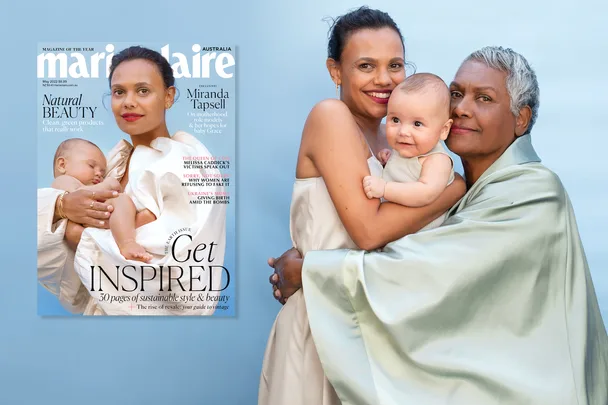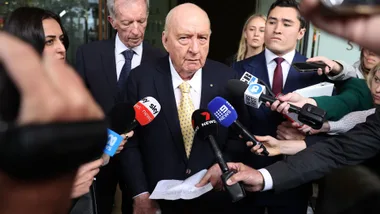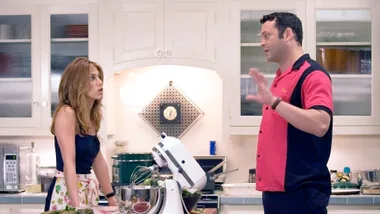At four months old, Miranda Tapsell’s daughter Grace is already showing signs of her parents’ star power: there’s the impossibly charming smiles, the sassy side-eye and the endless stream of babble and giggles entertaining the crew at her marie claire May cover shoot. “She’s quite the social butterfly, she constantly needs to be where the action is and has quite good comedic timing already,” says Tapsell.
The energy at the photoshoot takes after Tapsell: bright and bubbly. Grandma Barbara heats up Grace’s bottle in her cup of green tea, and Tapsell quips, “That’s so Black, Mum!” Later, Tapsell does her best Kelly Rowland impression when Nelly’s “Dilemma” comes on. And throughout the day, the crew say a united prayer to Grace: “Please, for the love of God, don’t poo on the Prada.”
Motherhood looks good on Tapsell, who cradles her baby to her chest and gently kisses her head in a moment of serenity in front of the camera. It’s not always like this. There have been sleepless nights and exhausted tears (from both Grace and Tapsell). “Sometimes I feel so out of my depth and like I don’t have time to breathe, but then Grace will look at me and smile, and I think I must be doing something right,” she says.

“Becoming a mum has made me more forthright. In my twenties, I was always worried about being perceived as rude or demanding, but now I’m much better at asking for what I need and saying no to things. That’s been refreshing and empowering for me. I’m grateful to Grace for giving me that strength.”
For Tapsell, this magazine cover is a significant moment in time. This is, after all, the first time she’s introduced her daughter to the world, the first time she’s done a magazine photoshoot with her mother, and the first time she’s spoken publicly about the unique challenges of raising an Indigenous child in this country.
The day of Miranda Tapsell’s cover shoot for the May issue of marie claire Australia, news broke that the police officer who shot and killed teenager Kumunjayi Walker in his house in Yuendumu in 2019 had been found not guilty on all charges.
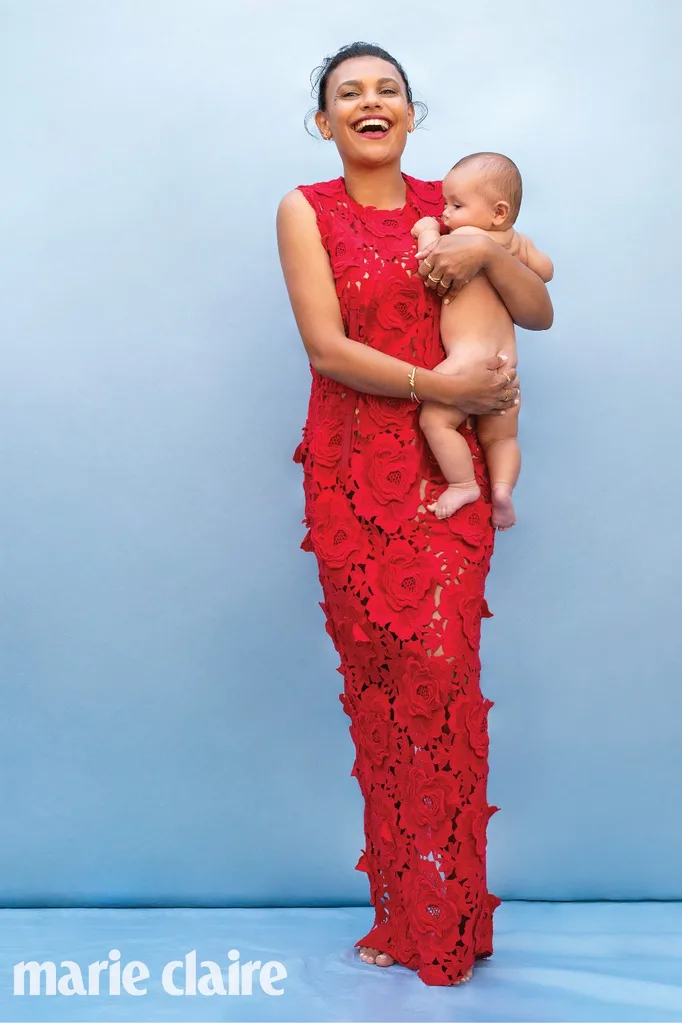
“I have a lot of fears for Grace’s future. There’s a lot of potential danger on our doorstep that I have no control over, including the rate of incarcerated Aboriginal youth and the number of Indigenous deaths in custody. I often feel like the dad in Finding Nemo – constantly worried – and I know that feeling is never going to go away, so I’m going to have to find a way to deal with it,” admits Tapsell, clutching the delicate silver butterfly pendant hanging around her neck – a gift from husband James Colley in honour of their daughter. “All I want is for my daughter to be safe, that’s what I fight for. I want my daughter to be able to walk into a shop without being followed by security and asked to hand over the contents of her bag, like I was.”
It starts with education, but it doesn’t end there. Tapsell encourages us all to read books by Indigenous authors, to call out our racist uncles, to shop at Black businesses, and to support community organisations like Seed Mob, the Indigenous youth climate network, and Sisters Inside, who advocate for the collective human rights of women and girls in prison and their families. And to stop asking “Black, brown and Indigenous women” to keep doing all the emotional labour and having the hard conversations.
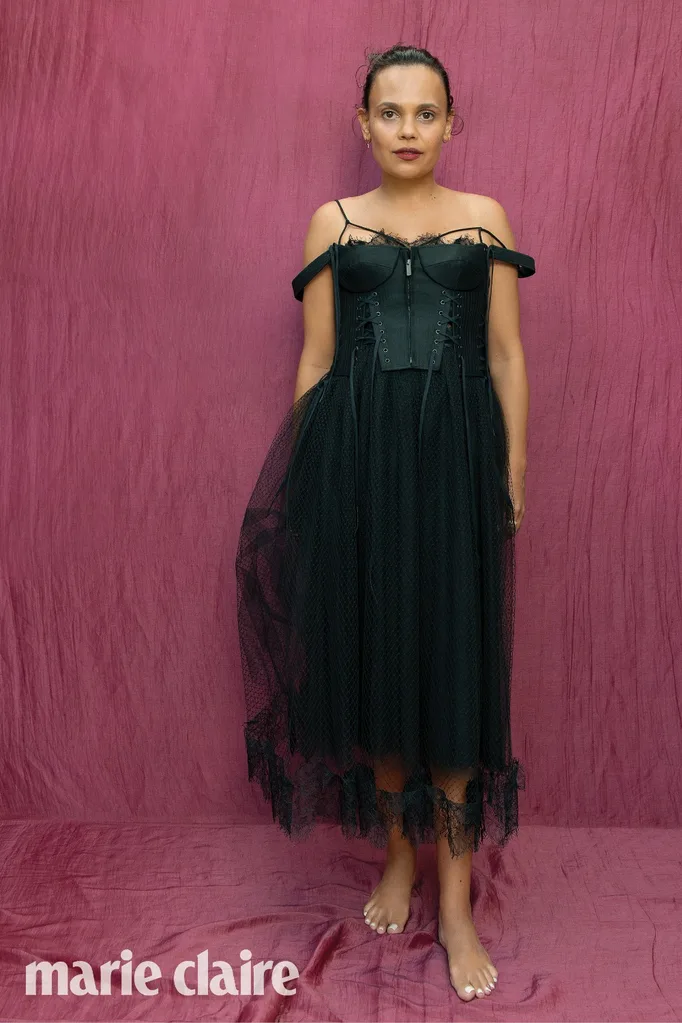
Of course, representation also matters. When Tapsell fronted marie claire’s It’s Time campaign for constitutional recognition alongside singer Jessica Mauboy and model Samantha Harris in 2019, a little Indigenous girl burst into tears in the supermarket because she’d never seen someone who looked like her on a magazine cover before. When The Sapphires came out in 2012, she was sent a video of six young girls on Elcho Island off the coast of Arnhem Land lip syncing the lyrics “sugarpie honeybunch” from the film’s soundtrack.
It’s those little girls on Elcho Island – and the little girl in her arms today – that push Tapsell to keep telling her stories, showing her face, and raising her voice. She’s already back in the writer’s room working on a top-secret project, and she will always be committed to real diversity and inclusion.
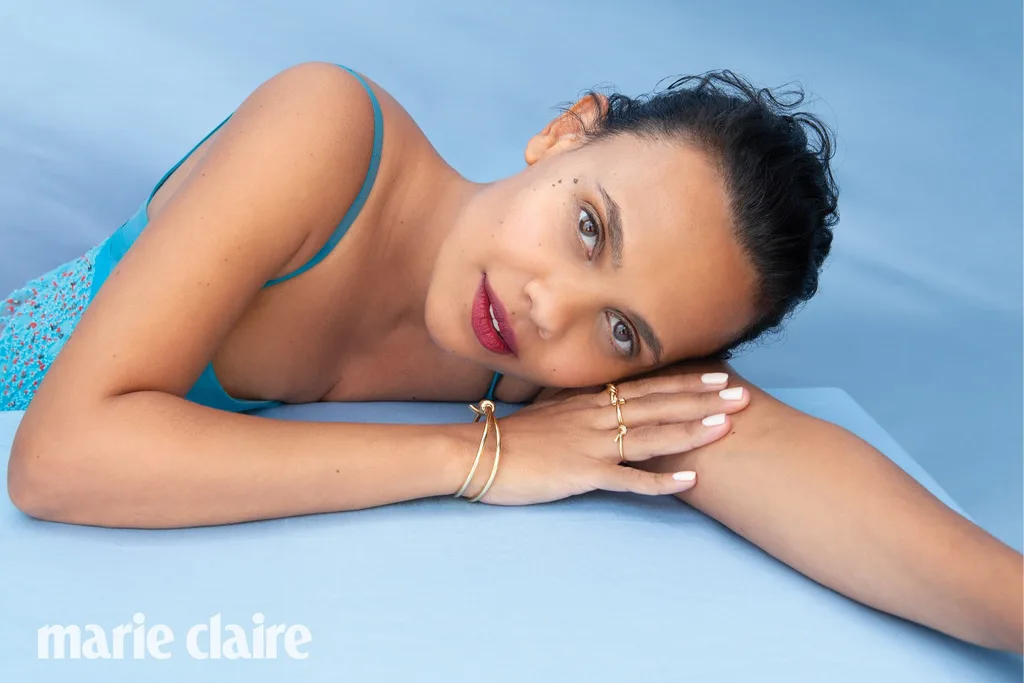
“When I got cast in The Sapphires – my first ever film role, fresh out of drama school at NIDA – I realised that I can actually change people’s perceptions about Aboriginal people. Our journey isn’t just the Stolen Generation, poverty, and trauma. It’s more than that. And that’s why I got into screenwriting and producing [as well as acting] to tell those stories. I’d also like to get into directing because I know that to tell the stories, I’ll need to be at the helm.”
Read the full interview in the May issue of marie claire Australia, on sale April 14th.
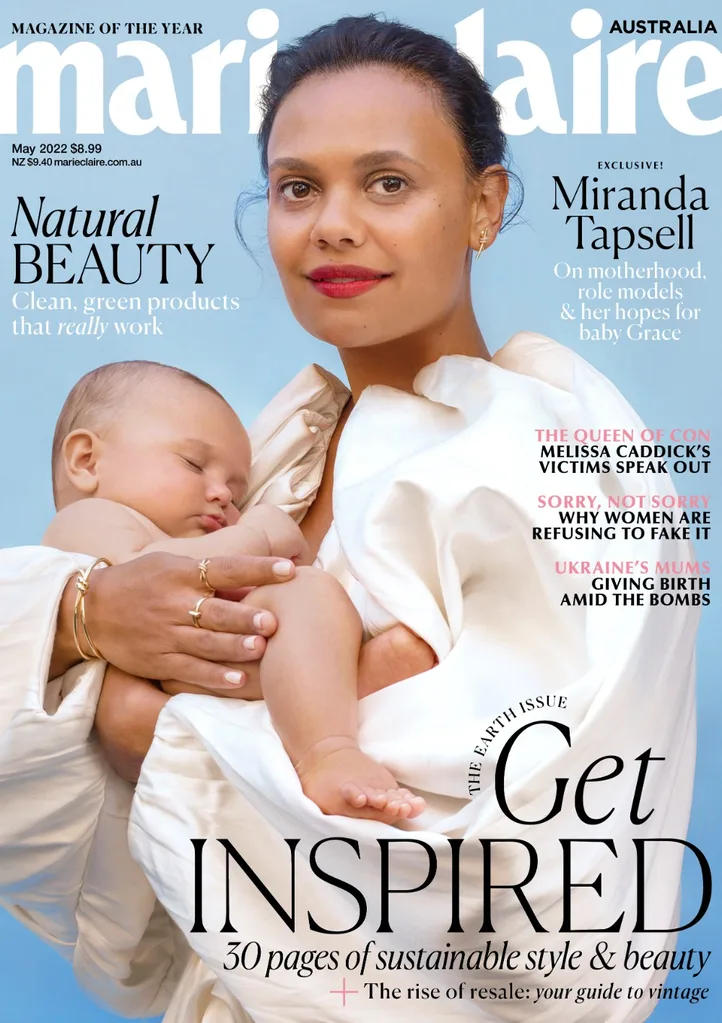
Photography: Holly Ward
Stylist: Rachel Wayman
Hair: Daren Borthwick
Makeup: Isabella Schimid
